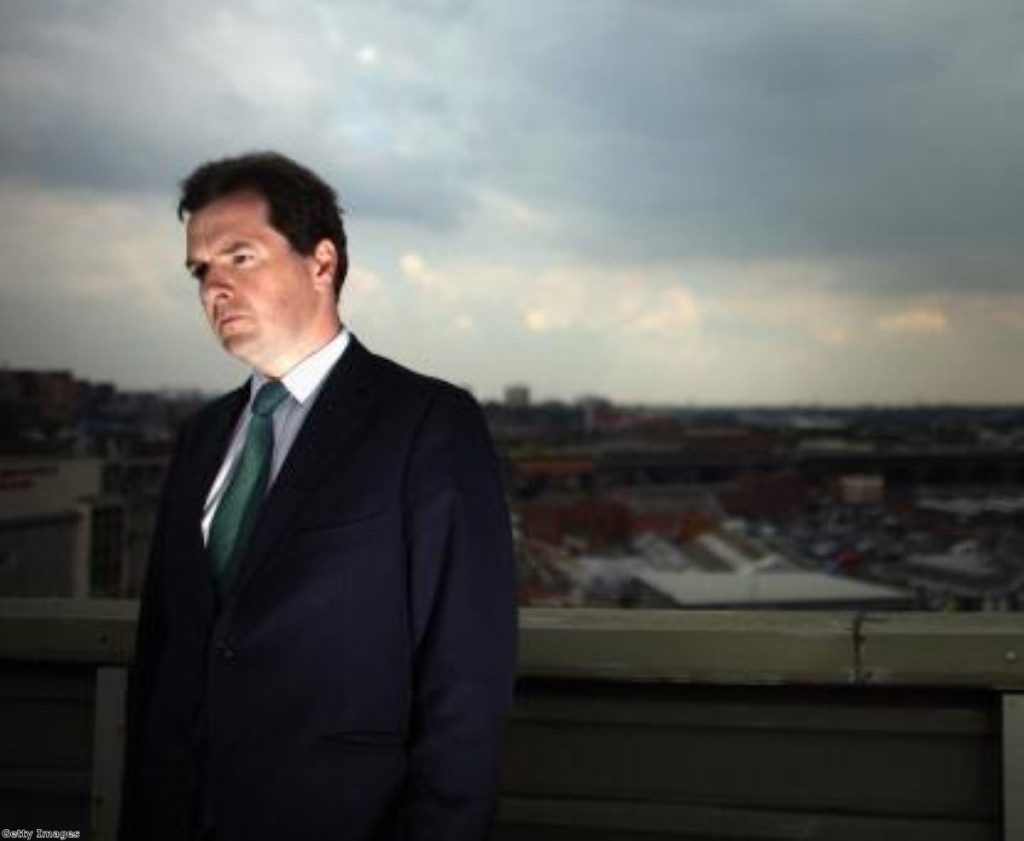The Week in Review: Osborne stays downmarket
George Osborne's decision to cut the top rate of tax two years ago was a goof of almost Godfrey Bloom proportions. It wiped out public trust in the government and made it impossible for Osborne to ever again claim that the country was "all in it together."
That is until now. Osborne's announcement this week that he wants to see the minimum wage rise to £7 is the first real sign that the Conservative party is beginning to understand the difficulties they face at the next election and the steps they need to take to counter them.
It is a smart move both economically and politically. It will cost the government next to nothing and may even save them money in the long term. More importantly it makes it far more difficult for Labour to portray the Conservatives as a party only interested in helping the rich.
But those hoping it marks a turning point for the party are likely to be disappointed. This was not any great moment of principle from Osborne who has long been opposed to raising the minimum wage. Nor was it part of a wider agenda, as the shocked reaction from both trade unions and big business has attested.


Instead the timing of the announcement suggests that it was a purely cynical political decision, shamelessly positioned to overshadow Ed Miliband's first big speech of the year.
So far so what. Osborne is entitled to announce his policies when and how he likes. But the point is that while Osborne has done one thing this week to change people's negative perceptions of the party, everything else the government is doing has simply reinforced them.
The party's obsession with immigration shows no sign of ending, despite the government's own advisors telling them it has hugely benefited the UK economy and wiped billions off of the deficit.
It also continues despite one estimate that just two dozen Romanians have so far entered the UK, since work restrictions were lifted.
There is a human cost to this obsession. For every government announcement designed to stoke fears about immigration, there are many more immigrants and asylum seekers suffering abuse and ill-treatment in the UK.
But there is also a political cost. All the polls show the public share the government's concerns about immigration, but they also show that this is not translating to an overall increase in vote share for the Conservatives.
This is a paradox that some people in the party have long realised. The party's most popular figure Boris Johnson was one of the first to diagnose the problem. The piece "Why we lost" appeared in the Spectator after the party's heavy defeat to Tony Blair in 2005. It is worth quoting at length:
"There are some who disliked the accent on immigration [during the campaign], and they have a point. There is no doubt that it won votes, perhaps a large number of votes. There are Tory MPs today in the Commons who would probably not be there had Michael Howard not had the guts to call for controls on immigration — even if the controls he announced, quotas for certain skills, were peculiarly statist and dirigiste. But you have to think of the effect of that campaign on the overall Tory brand.
"It sounded kind of downmarket, and the trick of life is to go upmarket. It’s the direction the human race wants to go. Look at Tesco. The store rules the world. It used to be a pile ’em high and sell ’em cheap place, catering for people’s base desire for cut-price sausages. Now it’s the store where everyone goes to shop; no one feels they are stooping to buy pies at Tesco, and people shouldn’t feel they are stooping to vote Tory.
"So there was a paradox: even if you actually agreed, secretly, with the Tory line on immigration, you might well simultaneously think there was something a bit naff about making it the centrepiece of the campaign."
It is this paradox that is preventing the Conservative party from winning the next election. The public may agree with the Conservatives on immigration, they may even agree with them on Europe. But what the public do not want, is to vote for a party which does nothing else but bang on about immigration and Europe.
The decision to raise the minimum wage is a wise attempt to move the party upmarket, but when everything else the party is doing is keeping them downmarket then it will count for little.
So when Tories call for bans on foreign languages, label feminism "ludicrous," or call for single parents to be judged, it's a problem. And when the work and pensions secretary calls a gay man a "pantomime dame" it's a bigger problem still.
Ed Miliband's performance this week suggests that Labour still have a long way to go to win an overall majority. But if Labour's task is large, then the Conservative task remains far larger still.

